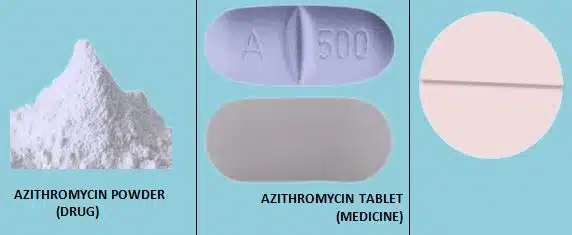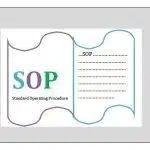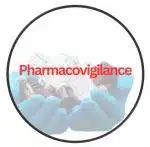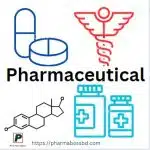There are difference between drugs and medicines difference. However, we often convey the same concept with these phrases. But, there are a few distinctions between a drug and a medicine, and these include:
1. Definition
Drugs: The term “drug” can refer to any chemical substance that, when taken into the body, alters its function physically and/or psychologically
Medicines: It refers to a pharmaceutical dosage form used to prevent, diagnose, alleviate, or cure diseases, illnesses, injuries, or other medical conditions.
2. Etymology
Drugs: Likely comes from Old French “drogue,” possibly from Middle Dutch “droge vate” (dry barrels), indicating dried medicinal substances.
Medicines: Derives from Latin “medicina” (the practice of healing), which comes from “medicus” (physician or healer).
3. Source
Drugs: There are several sources where drugs can come from, such as: plants, animals, microorganisms, minerals, synthetic, biotechnological method.
Medicines: But the source of medicine is all drugs which are formulated with or without excipients

4. Formulation
Drugs: Drug is only active pharmaceutical ingredients (API).
Medicines: Medicine is the formulated dosage form of API with excipients or without excipients.
5. Dose and Dosage form
Drugs: Drug can found any form. It has no specific dosage form and dose unit.
Medicines: Medicine must have specific dosage form and dose unit.
6. Examples
Drugs: Example of drugs are Azithromycin powder, Paracetamol powder, and Omeprazole pellets etc.
Medicines: Example of medicines are Azithromycin Tablet, Paracetamol Syrup, and Omeprazole Capsule etc.
Table: Difference Between Drugs and Medicines
| SUBJECTS | DRUGS | MEDICINES |
| Definition | The term “drug” can refer to any chemical substance that, when taken into the body, alters its function physically and/or psychologically. | Medicine refers to a pharmaceutical dosage form used to prevent, diagnose, alleviate, or cure diseases, illnesses, injuries, or other medical conditions. |
| Etymology | Likely comes from Old French “drogue,” possibly from Middle Dutch “droge vate” (dry barrels), indicating dried medicinal substances. | Derives from Latin “medicina” (the practice of healing), which comes from “medicus” (physician or healer). |
| Sources | There are several sources where drugs can come from, such as: plants, animals, microorganisms, minerals, synthetic, biotechnological method. | But the source of medicine is all drugs which are formulated with or without excipients |
| Formulation | Drug is only active pharmaceutical ingredients (API). | Medicine is the formulated dosage form of API with excipients or without excipients. |
| Dose and Dosage form | Drug can found any form. It has no specific dosage form and dose unit. | Medicine must have specific dosage form and dose unit. |
| Examples | Example of drugs are Azithromycin powder, Paracetamol powder, and Omeprazole pellets etc. | Example of medicines are Azithromycin Tablet, Paracetamol Syrup, and Omeprazole Capsule etc. |
Frequently Asked Questions (FAQs)
What is a drug?
A drug is any chemical substance that can alter the structure or function of the body. Drugs can have various effects on the body, ranging from therapeutic benefits to harmful consequences. They can be used for medical purposes, such as treating diseases or alleviating symptoms, or for recreational purposes to alter mood, perception, or consciousness. Drugs can be classified into different categories, including prescription drugs, over-the-counter drugs, recreational drugs, and illicit drugs.
How do drugs work in the body?
Drugs work by interacting with specific molecules in the body, such as receptors, enzymes, or ion channels, to produce their effects. These interactions can either mimic or block the natural processes of the body, leading to changes in physiological functions. For example, some drugs may bind to receptors on nerve cells to alleviate pain, while others might inhibit enzymes to reduce inflammation. The specific mechanism of action depends on the type of drug and its intended use.
What is a medicine?
A medicine is a type of drug that is specifically formulated and prescribed to diagnose, treat, prevent, or alleviate symptoms of a disease or medical condition. Medicines are designed to have therapeutic effects and are subjected to rigorous testing and regulation to ensure their safety, efficacy, and quality. They can come in various forms, such as tablets, capsules, liquids, injections, or topical applications, and are used under the guidance of healthcare professionals.
What is the difference between a drug and a medicine?
A drug is a substance used to diagnose, treat, or prevent disease, and it can affect how the body functions. A medicine is a preparation or formulation that contains one or more drugs, along with other components, designed to be used therapeutically to achieve specific health benefits.
How do prescription drugs differ from over-the-counter (OTC) medicines?
Prescription drugs require a healthcare provider’s authorization to be dispensed because they are used for more serious conditions or have higher risks of side effects and misuse. Over-the-counter (OTC) medicines can be purchased without a prescription and are generally used for minor health issues with a lower risk of side effects.
What should I do if I forget to take my previous dose?
If you miss a dose of your medicine, follow the specific instructions provided by your healthcare provider or the medication’s label. Generally, if it’s close to the time for your next dose, skip the missed dose and continue with your regular schedule. Never take a double dose to make up for the first you missed. If you confusion, always get advice from your healthcare professional.

Abdus Sobhan Salim is professional experienced pharmacist in pharmaceuticals, author and founder of pharmabossbd.com, the first Bangladeshi pharmaceutical blogger since 2019.



